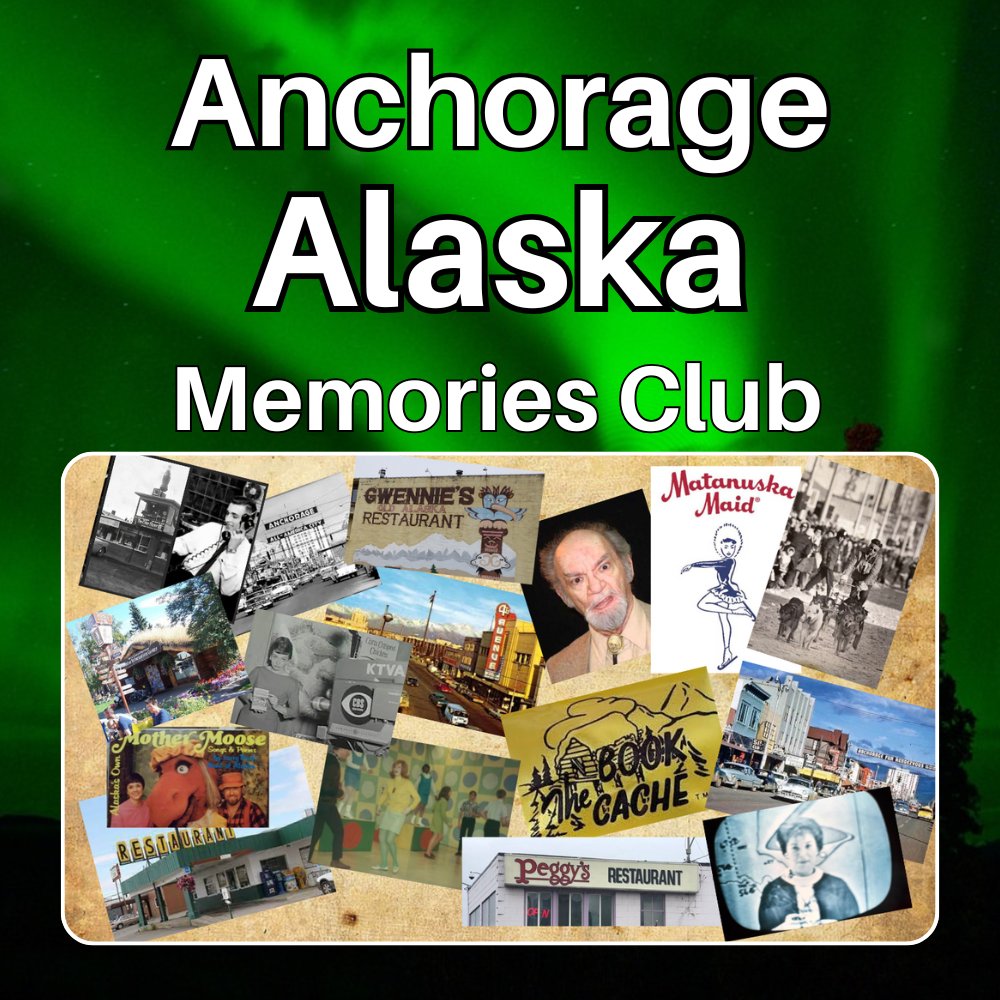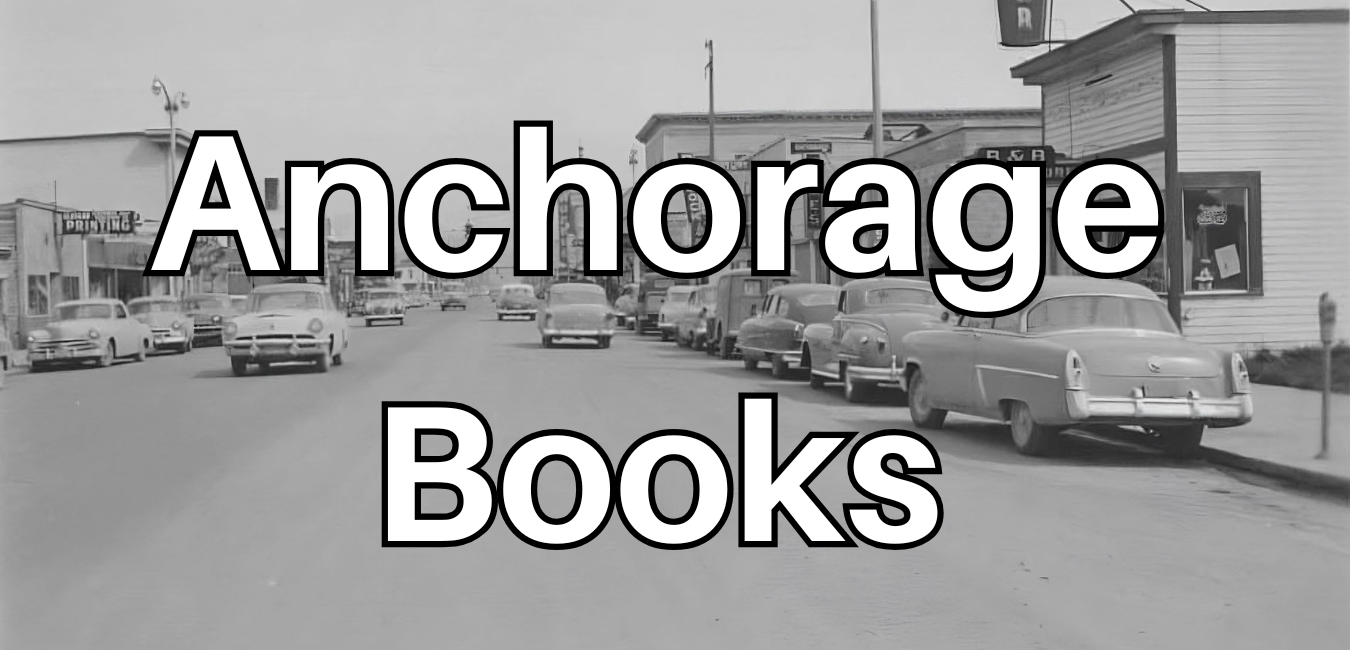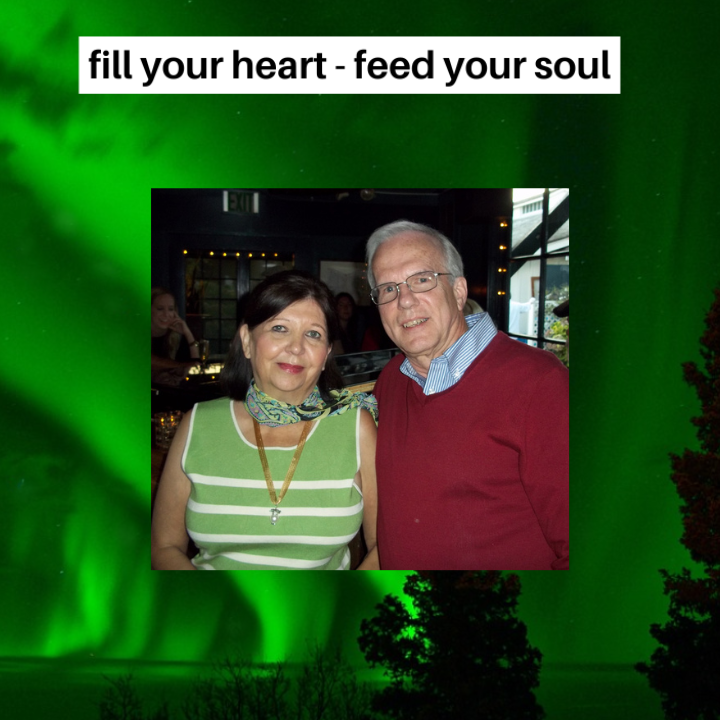Anchorage Art
Alaska artist Cindy Pendleton tells a story in each of these memory-filled, Anchorage Art watercolor images. Enjoy.
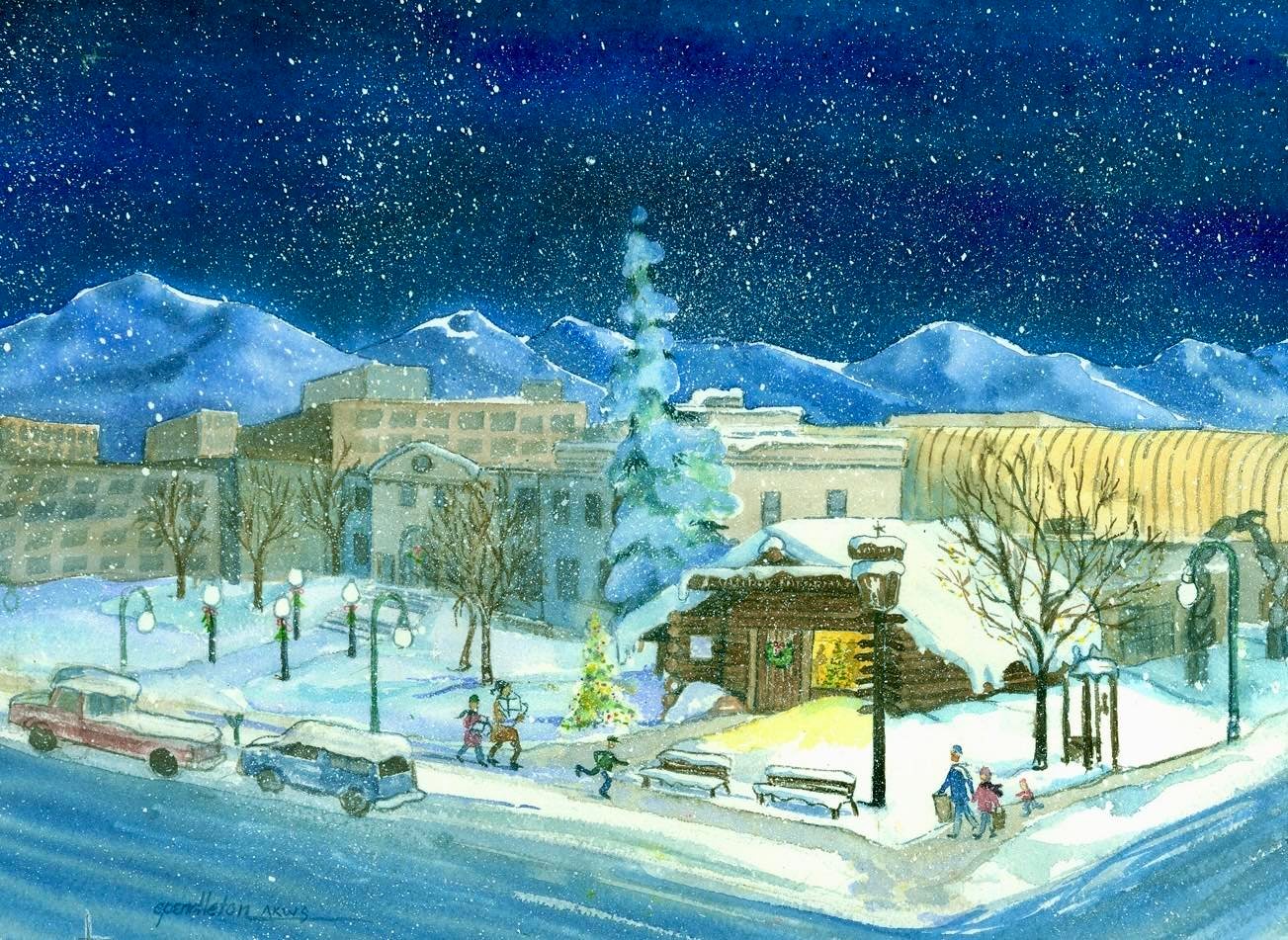 Visitor's Log Cabin downtown Anchorage
Visitor's Log Cabin downtown AnchorageAnchorage Art, above, captures a favorite spot for locals and tourists alike.
The log cabin is also home to the Anchorage Chamber of Commerce and visitors can go inside to get information about the city.
During the summer months, park benches in front of the cabin offer a nice place to rest and enjoy the sights of Alaska's largest city.
Eklutna Flats, Glenn Hwy, Alaska, Circa 1962
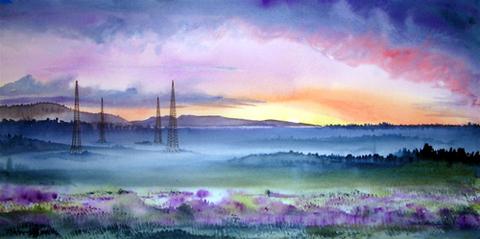
Note from the artist:
This was the view when driving from Anchorage to Palmer and back, four radio towers and Sleeping Lady off in the distance.
Each June they seem to float amidst a sea of wild iris.
The FAA removed the towers when the Native Land Claims Settlement was enacted in the '70s. I remember thinking how much nicer the view would be without those towers in the way.
Now, I kinda miss them.
Homer, 1960s, Before They Paved the Road
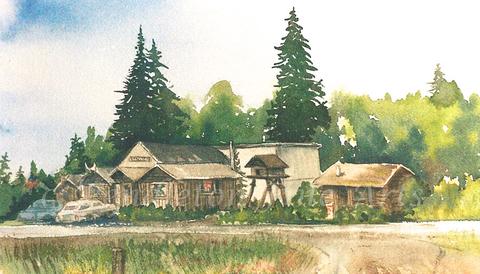
Note from the artist:
Homer has to be one of the prettiest spots in Alaska. Dusty old Pioneer Avenue was once the main drag through this picturesque little seaport.
Everything that seemed important for a town was found along this street.
Surely, the residents must have cheered its paving! However, for those of us who loved to visit the nostalgic little Alaska town at “the end of the road”, it was a definite sense of loss.
The Birdhouse, Seward Hwy, Alaska, Circa 1970
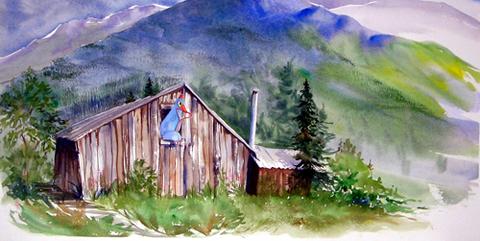
Note from the artist:
One of the most beloved watering holes in Alaska, the Birdhouse was known for its ptarmigan caller, boneless chicken dinners (hard-boiled eggs), and walls crammed with business cards – a must-see for tourists and locals alike.
It burned to the ground one weekend in the '90s.
Grown men wept.
Old Portage Town Site, Circa 1975
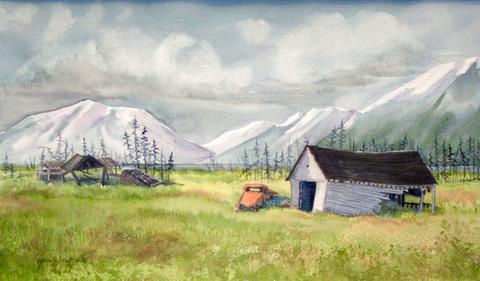
Note from the artist:
This little town sat at the end of Turnagain Arm.
Hardly more than a whistle-stop for the railroad, it featured a sign that read, “Portage, Alaska – 11 Friendly People, 1 Old Sorehead”.
After the '64 quake sank the land a couple of feet, the town was abandoned.
The tips of the buildings remain barely visible today.
Anchorage Art
The Original Knik River Bridge, Palmer, Alaska, Circa 1962
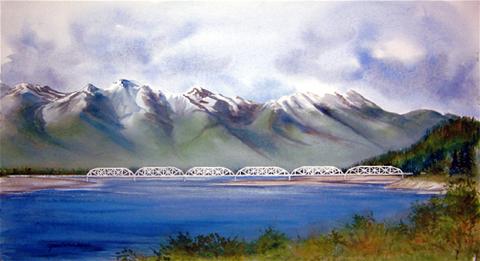
Note from the artist:
Few people know this beauty of construction was built in the early 20th century.
In the summer, the supports shimmered in the sunlight, giving it the look of sparkling lace against a backdrop of endless mountains.
At some point in the late 60s, a newer, stronger bridge was built. The older one is still standing but is unusable and hidden from view.
Our Point of View Lodge, Kenai Lake, Alaska,
Circa 1968
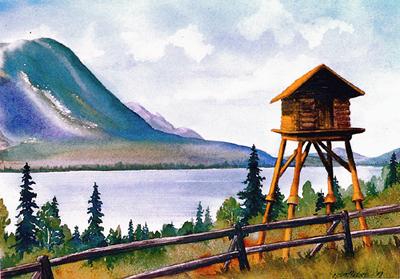
Note from the artist:
Built in 1955 by Ken and Pauline Lancaster, this lodge sat perched on a mountainside overlooking Kenai Lake near the “Y”.
It was just far enough from Anchorage for a nice drive.
Though somewhat perilous to reach, the meal and the view were well worth the steep drive up and down.
It burned to the ground in the mid '70s.
These days it's difficult to spot the old one-way gravel driveway.
However, the memories of the lodge are still there, right above the lake.
Rabbit Creek Inn, Anchorage, Alaska, Circa 1958
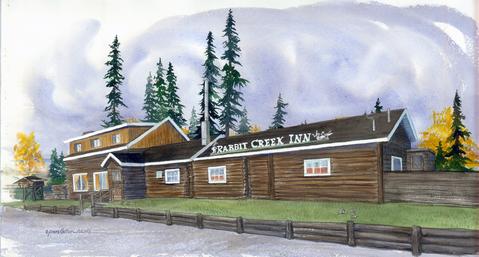
Note from the artist:
One of the best places to eat and celebrate in the 50s and 60s, the Rabbit Creek Inn saw countless weddings and birthdays.
Rabbits on the lawn (and on the menu) were the reason for its name, along with the creek that flowed by it.
The view of Cook Inlet was spectacular.
The Inn burned to the ground in the late '80s, and today the land is used as a sendoff point for rehabilitated birds.
Fourth Avenue, Anchorage, Alaska, Good Friday Earthquake 1964
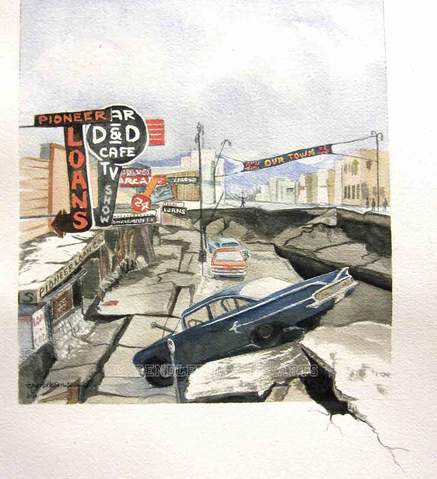
Note from the artist:
This watercolor was done from an iconic photo taken in the aftermath of the '64 earthquake.
The temblor that shook Alaska measured 9.2 and lasted some 4 minutes.
139 people died that day, making it the worst disaster in Alaska's history.
Today, there are virtually no visible reminders of the devastation in downtown Anchorage.
But just ask anyone who lived through it, and they will be able to tell you about their experience, most likely in vivid detail.
Anchorage Art
Earthquake Park, Anchorage, Alaska, Circa 1967
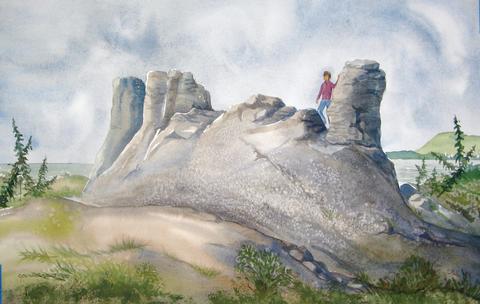
Note from the artist:
A chunk of land west of Turnagain Subdivision was set aside so that all would remember the devastation of the '64 quake.
A trip to the park meant going down a long staircase from the parking lot, and meandering through monolithic like clay upheavals and topsy-turvy trees still growing in the mounds of twisted earth.
The park was an awesome reminder of Mother Nature's force.
Since then, Mother Nature has also shown that time does indeed, heal all wounds.
Today all you see is a forest of spruce and alders.
Nikko Garden, Anchorage, Alaska, Circa 1960s
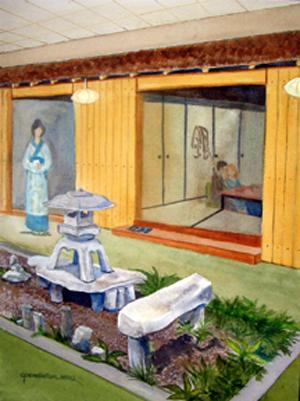
Note from the artist:
Built by George Kimura, this restaurant was considered to be the finest Japanese dining in Alaska, if not the entire west coast.
The outside was not much to look at, but the interior was like stepping into another world, complete with a dry stream bed and a bridge to cross to get to the tables.
Separate rooms were also available for a more private setting.
Nikko Garden burned to the ground in 1979.
The restaurant reopened later in the Denali Towers.
The food was still terrific, but it seemed to lack the same atmosphere of the original place, Ironically, another popular restaurant thrives on the same Spenard Road site today – A McDonald's.
Go figure.
Sportsman's Lodge, Cooper Landing, Alaska,
Circa 1968
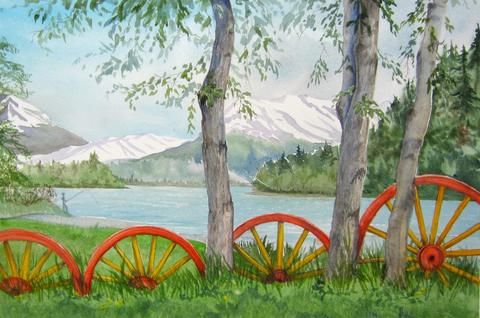
Note from the artist:
This was the view of the Kenai River from behind the lodge, where you would wait to be ferried over to the Russian River and prime salmon fishing.
Many a fish tale was shared in the bar at the lodge.
The lodge was torn down and replaced with a big parking lot for the ever-growing crowd of fishing hopefuls in the '90's.
Reflections
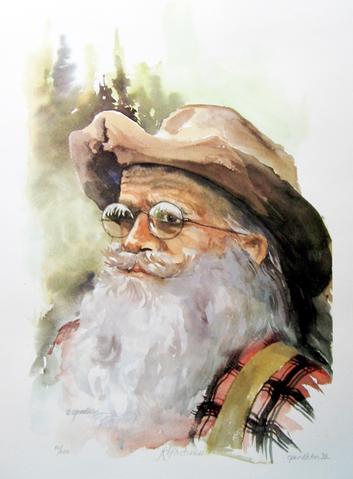
Note from the artist:
“Reflections” symbolizes the person who was lured to the wilderness by the quest for riches, and found instead, another timeless treasure – the land itself.
Hopefully, this type of hardy soul hasn't actually disappeared from our wild and wonderful frontier state, but is merely dressed differently.
All the artwork by Cindy Pendleton, appears on Anchorage Memories by special permission of the artist and all the artwork by Cindy Pendleton is copyrighted by Pendleton Fine Arts.
Anchorage Art
We hope you have enjoyed Alaskan Artist Cindy Pendleton's nostalgic look back at places in and around Anchorage that we fondly remember.
Her vision, represented by the slightly pale look of watercolors, matches the memories we hold dear in our hearts. Not quite in focus, but nevertheless, alive and well.
Now, because of Cindy's talent, and obvious love of Alaska and Anchorage, you can visit these precious memories any time you want.
Enjoy.
BONUS
Memories of the Anchorage you love
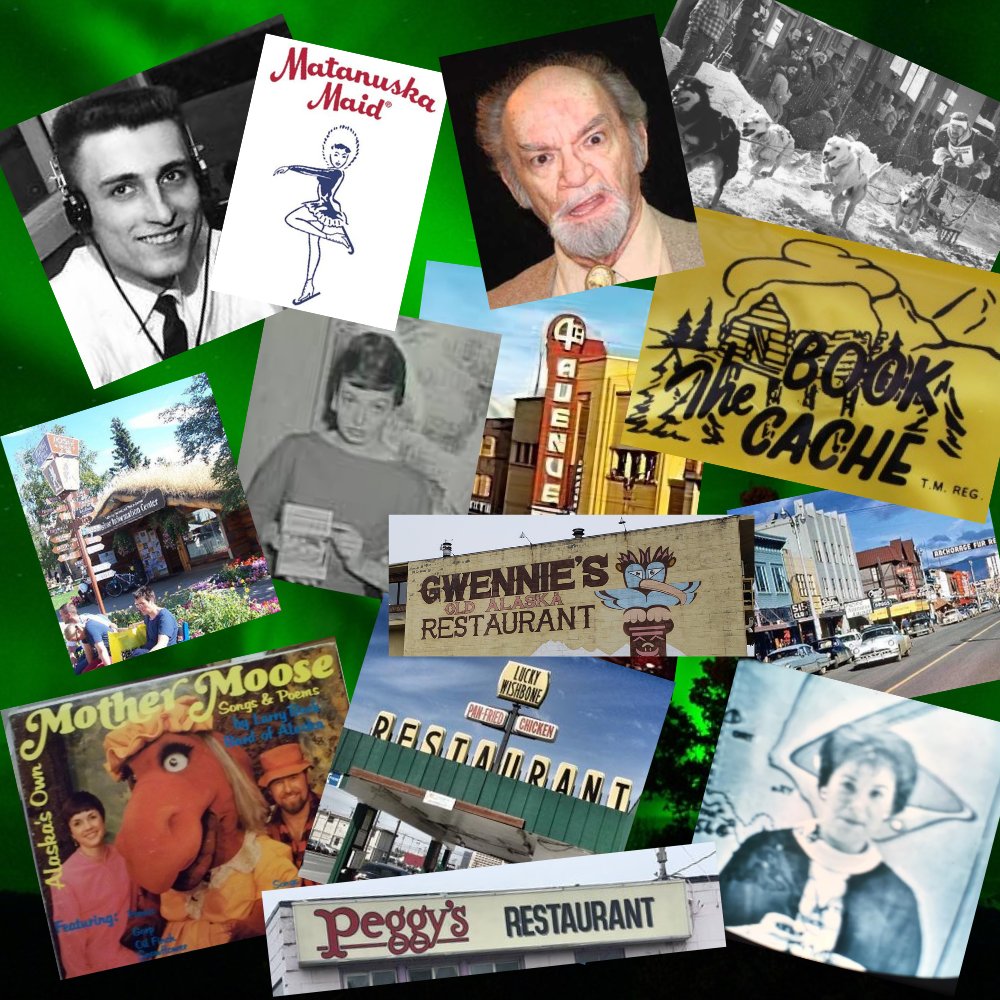
The Anchorage, Alaska Memories Club
It's FREE
*Meet the Pioneers who built Anchorage
*History of Anchorage, Alaska
*sent to you by email twice each month
The Anchorage, Alaska Memories Club
it's FREE



